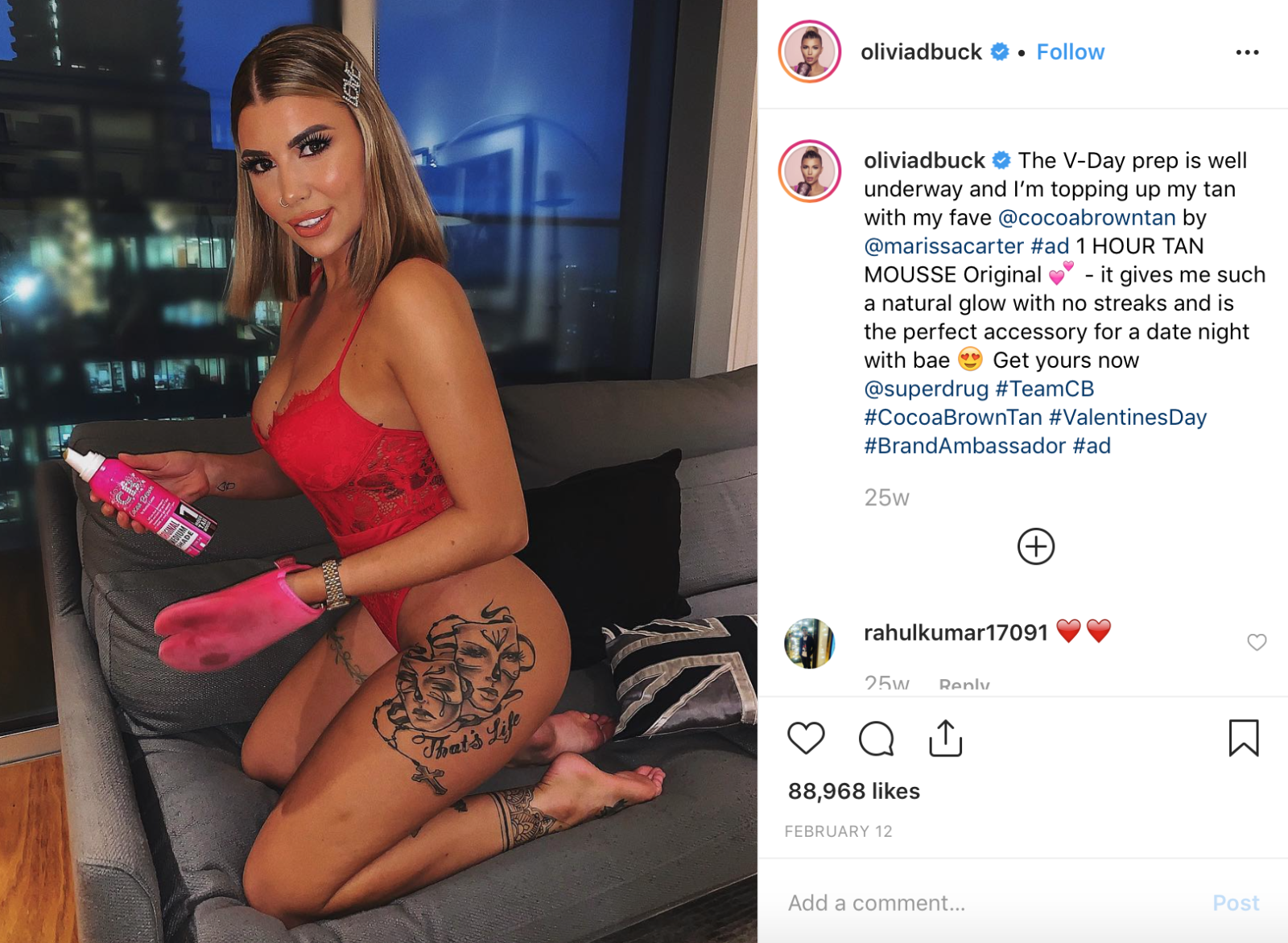Working with influencers in the United Kingdom? There is some new guidance from the British Advertising Standards Authority (“ASA”) that is worthy of note: #BrandAmbassador is not a valid disclosure. That is the takeaway from a recent decision from the British ASA in a case centering on British reality television star Olivia Buckland’s endorsement of a self-tanning product on her heavily-followed Instagram account early this year.
After receiving a formal complaint in February that pointed to a promotional post on “Love Island” star Olivia Buckland’s Instagram account, the British ASA – a self-regulatory organization tasked with ensuring that advertising across all UK media is free of misleading, harmful or offensive advertisements – initiated a probe. In a decision issued last week, the ASA determined that Buckland’s post, which consisted of an image of the reality star holding a pink bottle with Cocoa Brown by Marissa Carter’s “CB” logo on it, runs afoul of its Code of Non-broadcast Advertising, Sales Promotion and Direct Marketing (“Code”).
According to the ASA’s decision, the caption associated with Buckland’s Instagram post states, “The V-Day prep is well underway and I’m topping up my tan with my fave @cocoabrowntan by @marissacarter 1 HOUR TAN MOUSSE… ”. After the “more” button, it continued on, “It gives me such a natural glow with no streaks and is the perfect accessory for date night with bae [heart eye emoji] Get yours now @superdrug #TeamCB #CocoaBrownTan #ValentinesDay #BrandAmbassador”.
At issue for the ASA was whether the paid-for post was “obviously identifiable [to[to consumers] as a marketing communication,” as required by the Code, which mandates that when “marketers and publishers must make clear [to consumers when content consists of] marketing communications.”

The ASA asserted in its decision that while Buckland states in her bio that she is a Cocoa Brown ambassador, that, alone, is not enough, as her bio was “unlikely to be seen by Instagram users at the point they were viewing individual advertising posts.” More than that, the ASA was dissatisfied with Buckland’s inclusion of #BrandAmbassador in the body of the caption for two reasons. Primarily, the regulator states that the positioning of hashtag was “insufficiently prominent to ensure that individual posts were each obviously identifiable as ads, both when the post was viewed in-feed and when it was viewed in its entirety once users had clicked on it.”
Second, the ASA declared that the #BrandAmbassador language, itself, is insufficient, as that specific hashtag “was likely to suggest to readers a general relationship with the brand,” and “unlikely to convey that Cocoa Brown had both paid for and had a level of control over the content of the post.” The ASA noted that “#ad placed upfront” in the caption would have been a proper disclosure, as that would have “made clear to those viewing it that it was an ad.”
The element of control is a significant one, as unlike in the U.S., where the control of a brand over the promotional post(s) is not required in order to give rise to a violation of the Federal Trade Commission’s guides, for a post to become subject to the UK Advertising Code, a brand must have some control over the content. (This is distinct from when a brand “rewards an influencer with a payment, free gift, or other perk,” as “any resulting posts” become subject to consumer protection law.)
Control, however, is a relatively low bar, according to the ASA, which has held that it can involve a brand dictating “particular words, phrases, themes or ‘key messages’” that an influencer needs to include or dictating the specific number of times an influencer must post about a brand/product. Still yet, if the brand requires that they be given the right to “check/approve the content before it’s posted,” that could be considered control.
In determining that the post was “not obviously identifiable as a marketing communication and as such, breached the Code,” the ASA has formally required that Buckland update her post and that going forward, she and Cocoa Brown must “ensure that their ads were obviously identifiable as marketing communications, for example by including a clear and prominent identifier such as #ad.”
As of the time of publication, Buckland’s caption had been updated but maybe not in a way that would pass ASA muster. The star added #ad to a string of hashtags the end of the caption, as well as to the end of the third line of text.











